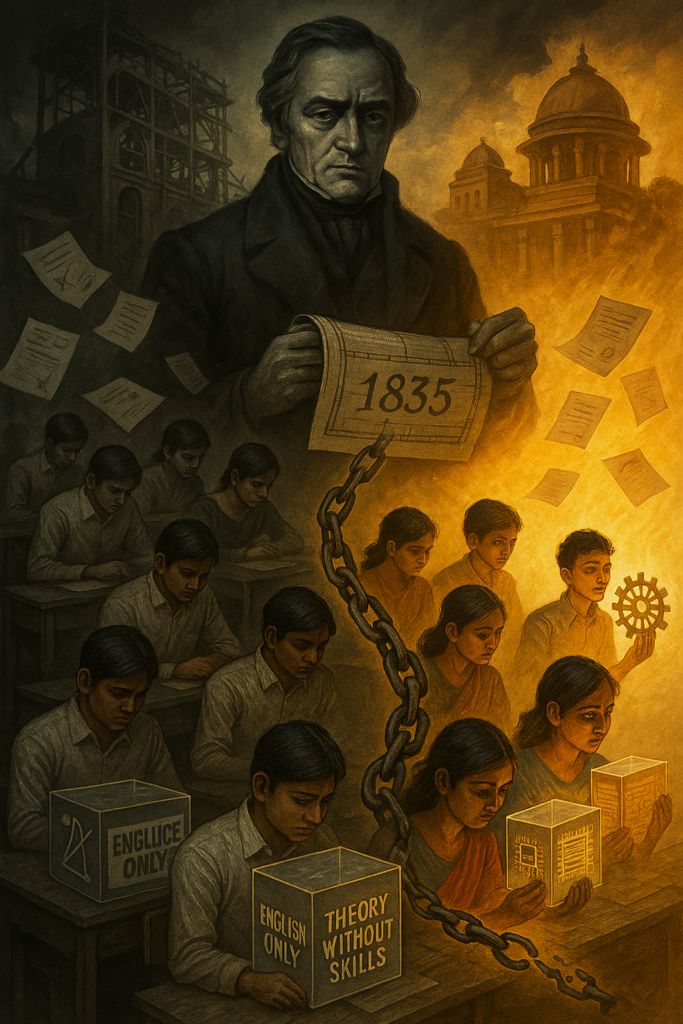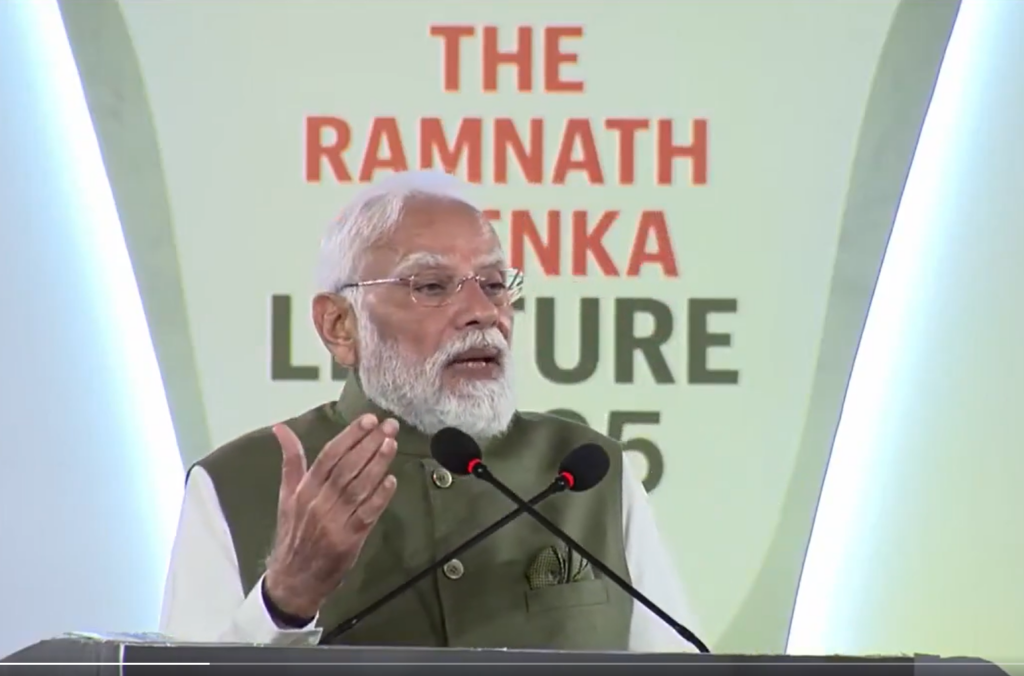
- The time for salvaged utility is over; the colonial scaffolding must finally come down, for its continued existence is actively preventing India from achieving its true civilisational potential.
- To pretend that a system born of such mal-intent could somehow serve the best interests of a free, modern nation is an act of collective delusion.
- A system that produces a vast pool of certification-holding, yet non-contributing, members of society has clearly outlived whatever utility we may have salvaged out of it post-Independence.
- If we can reclaim our educational soul, replacing the pursuit of certificates with the pursuit of competence and character, the economic prosperity and intellectual dominance of India will naturally follow.
Prime Minister Narendra Modi’s recent, powerful call to dismantle the “Macaulay Mindset” is not merely a political slogan; it is a critical national imperative that strikes at the root of India’s most persistent economic and societal afflictions. It is a challenge to reverse a deeply entrenched system that has systematically broken, brainwashed, and enslaved the Indian intellect for nearly two centuries. The time for salvaged utility is over; the colonial scaffolding must finally come down, for its continued existence is actively preventing India from achieving its true civilisational potential.
The problem is not one of an outdated curriculum, but of a flawed foundation. Thomas Babington Macaulay’s notorious 1835 minute had one singular, explicit purpose: to create a class of “suave slaves” for the British Crown. His vision was to cultivate a demographic that was “Indian in blood and colour, but English in taste, in opinions, in morals, and in intellect.” It was a socio-engineering project, where the very foundation of our educational structure was skewed from its inception.
To pretend that a system born of such mal-intent could somehow serve the best interests of a free, modern nation is an act of collective delusion. The British are long gone, yet the ghost of colonial subjugation remains enshrined in every classroom that prioritises rote learning over practical skill, abstract theory over ancient wisdom, and intellectual subservience over innate confidence.
The Cost of Colonial Education: Intellectual and Economic Bankruptcy
The most damning indictment of the Macauley system today is its abject failure to equip its graduates for the contemporary world. This failure is quantifiable and devastating. We now hold the unenviable title of producing the highest number of unemployed and unemployable engineers in the world. We churn out young graduates who are not job-ready because they lack the necessary skills, and who find it difficult to pivot because their knowledge and exposure are tragically limited.
The rot runs deeper than just the engineering class. In my professional capacity, I interview and interact with hundreds of UPSC aspirants who have cleared their mains and made it to the personality test every year, many of them from technical fields. I am sorry to say that a significant number of these highly educated individuals are unable to use simple logic and common sense to come to basic conclusions. Their minds have been trained to memorise and reproduce, but not to think, innovate, or apply knowledge contextually. They are theoretically proficient but practically sterile.
A system that produces a vast pool of certification-holding, yet non-contributing, members of society has clearly outlived whatever utility we may have salvaged out of it post-Independence. It has become a national liability that stifles enterprise, chokes innovation, and fuels a dependency mindset – a direct contravention of the Aatmanirbhar Bharat vision.
The Indigenous Imperative: Bharat’s Own Blueprint

The solution to this national crisis is clear, and it lies not in importing another Western model, but in a deliberate and confident embrace of our own past. The answer is in our indigenous or Indic knowledge system.
The debate must move beyond English versus local languages. Language is just a medium of communication. The core issue is the idea of education itself. We need a system that brings out the best in us and empowers us, not one that enslaves us. The Indic knowledge systems, with their holistic approach, focused on the individual’s nature, character, and practical contribution to society, offer the perfect blueprint.
We must create a system that is fundamentally our own, one that incorporates ancient Indian knowledge and imparts it in a modern way, keeping the best interests of the nation and the individual in mind. We must be armed with time-tested skills – drawing from our profound heritage in metallurgy, town planning, and sustainable living – alongside future-ready skills, such as AI, quantum computing, and complex analysis. The aim must be to cultivate thinkers, innovators, and problem-solvers who are rooted in their own culture yet confident on the global stage.
A Call for National Resolve
The momentum for this civilisational correction has begun at the highest level. The Prime Minister’s ten-year challenge, leading up to the 200th year of Macaulay’s campaign, is a national roadmap to eliminate this colonial stain once and for all. This will not be easy; there are several actors, both domestic and foreign, who do not want this change to take place, as it disrupts their deeply entrenched power structures.
But this is a much-needed start. The wheels are set in motion, and the national commitment is palpable. For my part, I have already pulled my own children away from the colonial architecture. They have never even seen the gate of a school, or, for that matter, know how a traditional school functions. In fact, they are enrolled in a Gurukulam that imparts ancient Indian wisdom in a modern way. I am happy to state that they are thriving; they are HAPPY. And as a parent, nothing else matters.
If we can reclaim our educational soul, replacing the pursuit of certificates with the pursuit of competence and character, the economic prosperity and intellectual dominance of India will naturally follow. The time to act is now. Let this next decade be defined by a resolute national effort to dismantle the Macaulay mindset, allowing the authentic Indian genius to finally shine.
Frank is a Senior Journalist and an International Relations Expert. He is also the founder of Bharata First, a platform to inform, educate and empower the youth. Views expressed are the author’s own.
